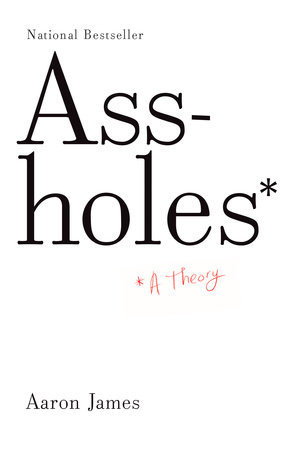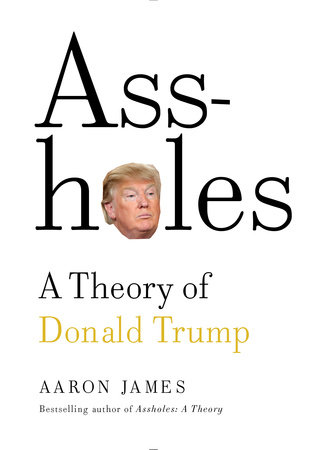America is Totally NOT a Wazzock
[Guest post by Dr. A. James Frisbee, Advanced Scholar at the Center for Advanced Studies, USA]
During a trip to South Africa last summer, a local and I were sitting in a Durban cafe having a fun conversation about who is and who is not of a certain morally foul personality type. (The usual name starts with the letter ‘a’—but I”ll call these people by the British name “wazzocks.”) Then my friend had the gall to ask whether I and my country, the United States of America, might too count as a wazzock.
He went on, but I definitely wasn’t persuaded by whatever it was he was saying in his admittedly cool South African accent. But I’ve being thinking a lot about the question in the meanwhile, and now, on behalf of my country, I want to give him my reply.
When Mitt Romney visited England and inadvertently suggested that London might not pull off the Olympics, the British press called him a “wazzock,” meaning that he came off like a hapless idiot. The discussion with my South African friend wasn’t so much about people who are oblivious, but rather people (or countries) that are motivated by an unwarranted sense of entitlement to special privileges in social life, a sense of entitlement that leaves them unwilling to entertain the complaints of other people.
By this definition, the US is totally not a wazzock, since, as I now wish to argue, it rightly feels entitled to expansive special privileges in the international arena.
I have to admit that Bush’s doctrine of preventive war and Obama’s preventive use of drone strikes come off pretty bad under international law (which allows unilateral self-defense only after a “credible and imminent” threat arises). I’m guessing all hell would break loose in India, Pakistan, Iran, Israel, etc., if every country acted on the US’s very broad (virtually unlimited?) definition “self-defense.”
But, look, exceptions can be fair, at least in principle. American ideals have gravitational power, and while many countries face serious risks of attack, America faces even greater risks of attracting unwanted people. So it should have special privileges. The question is: of what sort?
Well, unfortunately, the US is still in wazzock territory if any special privileges must be strictly proportionate to the risks a given country faces. For the US wouldn’t then be fully exceptional. Other quite vulnerable countries, like England, France, or Spain, and maybe even India, Pakistan, etc., would also get (perhaps lesser, but risk-proportionate) rights to use “preventive” violence.
But this is clearly ridiculous! Or so I solemnly believe.
In which case, all other countries should instead wait for “credible and imminent” threats to arise, for the sake of global stability, while the US enjoys the right to minimize even the slightest risks of being attacked. That goes for invasions, drone strikes, and Guantanamo: we just don’t have to take our chances that prisoners will be released after federal courts find them innocent.
Granted, the air of wazzockry is a harder to dispel in human rights law. Harvard law professor Jack Goldsmith says the US sets a “double standard” for itself mainly “because it can.” He suggests the international community should be grateful, since the double standard makes the US more willing to enforce human right standards against other countries.
While I’m all for human rights, here’s the rub: at least in theory, the US could do even better for human rights practice, by taking such radical steps as, say, ratifying the international bans on juvenile detention and the mistreatment of children.
Yet do we serious people really want to maintain that the US isn’t morally entitled to do all it can to protect its sovereignty, the Constitution, and the American family against the specter of human rights agreements? Does it really matter that the risks of abuse are in many cases trivial to non-existent?
No, it doesn’t matter, not in these matters of principle! The US does relatively well by its disabled people, but was still right not to ratify its own high standards for disability into an international treaty. The issue is: it is our damn business. And if that sacred principle is correct, we equally don’t have to explain why we put so many black people in prison, and surely then don’t have to give an account to foreigners for the even less bad ways we mistreat our children and our women.
One thing I did pay attention to in my conversation with my South African friend was the bit he quoted (impressively, from memory) from the Declaration of Independence: “a decent respect to the opinions of mankind requires that [we] should declare the causes which impel [us] to…separation.” What I should have said is that the Constitution came after the Declaration of Independence, and so clearly supersedes it. The Constitution is about accountability to the American People, not to “mankind.” So we the American People aren’t constitutionally bound to pay even “decent” respect for the opinions of mere foreigners.
Needless to say, I’m firmly against genocide and colonial exploitation, like in the old days of Manifest Destiny. But let’s face it, as Niall Ferguson so elegantly tells us, there’s the West and there’s Rest, and I’m sure my friend, a white South African, can fully appreciate the Anglo-Saxon, wild-west capitalist way of eliminating want and creating plenty. There will of course be unfortunate “inequality,” but “moral equality” is, if you think about it, just a legal fiction. It is obvious—“manifest,” if you will—that those who know best have every right to set the terms of economic engagement, however “unfairly.”
As the server brought our food, my South African friend did appreciatively mention America’s huge role in the post-war era. Then he asked, “What have you done for us lately?” I was glad he acknowledged our manifest greatness. But he wasn’t quite getting the whole Hope of the Earth concept. I guess, from the person sitting in darkness, I shouldn’t expect understanding.

